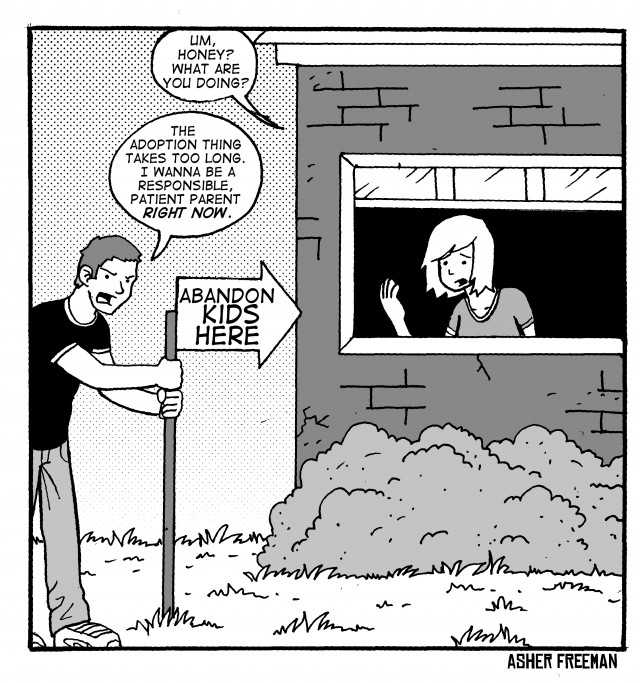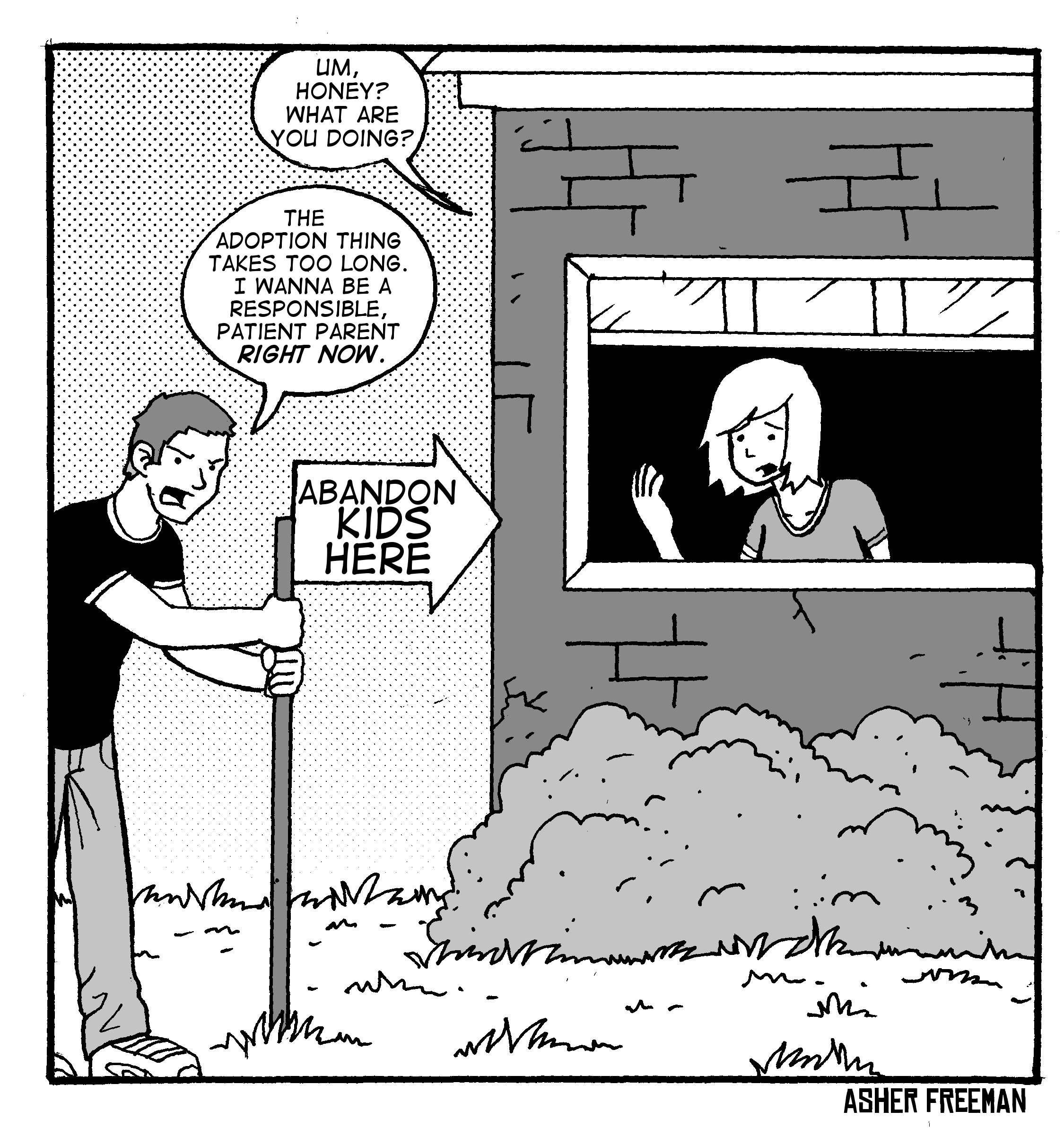 Many couples dream of adopting a child and will do whatever it takes to bring a child to the family, even if it means through less than legal means. A Reuters reporter investigated an underground network for adopted children where children and teenagers are handed off to other families.
Many couples dream of adopting a child and will do whatever it takes to bring a child to the family, even if it means through less than legal means. A Reuters reporter investigated an underground network for adopted children where children and teenagers are handed off to other families.
An underground market can seem like a dream come true for couples who desperately want children but do not have the time or money to go through the lengthy adoption process to become official adoptive parents. However, if one child is sold, or given, to a family that will abuse him or her in any way, it negates anything positive that can be gained from this underground market.
As the Reuters investigation pointed out, there are cases where children are traded, sold or just given to pedophiles and other unfit parents.
After an analysis from a five-year period on just one Internet message board, there was a child offered for “re-homing” about once per week. Most of the victims were children and adolescents, but some were infants as young as 10 months old.
In “re-homing,” the parents just sign over guardianship to the new parents and never have to see their kids or the new guardians again. The process could even be done in as little as 24 hours after the two sets of parents have made contact.
Many children relegated to being part of the black market-esque system are the result of international adoptions that did not turn out as the parents had hoped. Rather than try love and care for the child, after a while, the parents just give up, often fulfilling the distrust the children already have in their adoptive parents and reinforcing their motivation for acting out.
Many of these children have been taken from their home countries, everything that was once familiar to them, and then thrust into a brand-new society.
Their adoptive parents who took them out of their home countries into this new society have then decided they no longer want them and give them to someone else who may sexually abuse them.
One girl recounted how she was forced to dig her own grave. Another was taken by a pedophile who said, “Just have to raise them to think it’s fine and not to tell anyone. What is done in the family stays in the family.” There are countless other stories that are equally as graphic and disturbing.
The parents that these children are being given to are not subject to background checks, home inspections and other precautions parents going through the legal adoption process have to go through.
Reuters lists one safeguard against the tragedy of this black market, the Interstate Compact on the Placement of Children. This agreement requires parents who want to transfer adopted guardianship to notify the authorities of the current state the child resides in and the potential new state the child will live in with the new couple. This will allow for the prospective families to be vetted appropriately through background checks and home checks.
Unfortunately, this is rarely enforced. Instead, families use this as a way to get inexpensive children, whether with good intentions or bad. The Interstate Compact is not well known to law enforcement personnel.
Even if parents are found guilty of re-homing, the child is merely taken away and the parents are rarely, if ever, punished.
We strongly condemn this underground market and urge parents of troubled adopted children and teenagers and hopeful parents to use legal pathways of adoptions. We also encourage law enforcement authorities not to turn a deaf ear towards these practices of “re-homing.”
So again, we urge families to first try to work out issues that may arise in the families. If after that, they still cannot make a cohesive unit, they should use the appropriate channels to ensure the child goes to a loving home that has been vetted as a safe environment for the child.
We urge hopeful adoptive parents to use the appropriate pathways even if it is expensive and time-consuming in order to drive down the demand for these markets. And finally, we urge law enforcement agencies to keep an eye out for these transactions. These children cannot stand up for themselves, so they need us to look out for them.






